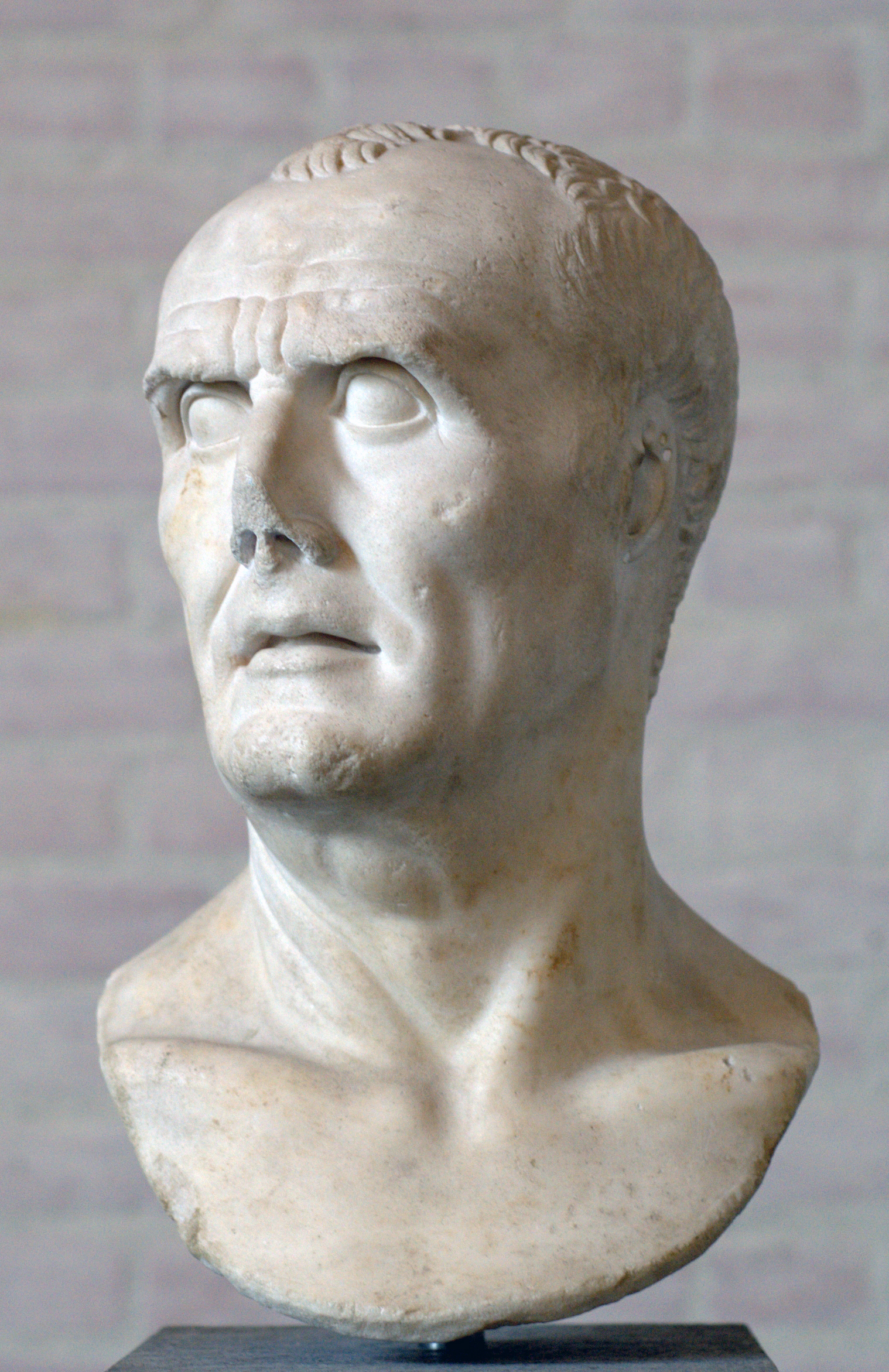Gaius Marius
The enemy of Sulla who instigated a series of civil wars, which marked the beginning of the end of the Roman Republic.
 Gaius Marius was born in the town of Arpinum in 157 BCE. A legend tells of how, as a teenager, Marius found an eagle’s nest with seven chicks in it. This omen was said to predict his election to the consulship seven times over. As consul, it was he, who declared the eagle to be the symbol of the Senate and People of Rome (SPQR). In 134 BCE, during the Numantine Siege (a minor skirmish in Hispania) , he earned the recognition of the Roman general, Publius Cornelius Scipio Aemilianus Africanus. Scipio praised him and suggested that Marius would be the one to replace him. During this time he was elected as a military tribune.
Gaius Marius was born in the town of Arpinum in 157 BCE. A legend tells of how, as a teenager, Marius found an eagle’s nest with seven chicks in it. This omen was said to predict his election to the consulship seven times over. As consul, it was he, who declared the eagle to be the symbol of the Senate and People of Rome (SPQR). In 134 BCE, during the Numantine Siege (a minor skirmish in Hispania) , he earned the recognition of the Roman general, Publius Cornelius Scipio Aemilianus Africanus. Scipio praised him and suggested that Marius would be the one to replace him. During this time he was elected as a military tribune.
In 120 BCE, he was elected Tribune of the Plebs. During this time, he did his best to stop the wealthy from interfering with the election of magistrates. Though he failed to be elected aedile in 117 BCE, he was elected praetor in the next year. In 114 BCE, he was sent to Hispania Ulterior (Further Spain). During this time, he began to make himself popular with his fellow soldiers. Plutarch tells how:
- And though the war brought many hardships, he neither shunned any great labour, nor disdained any that were small, but surpassed the officers of his own rank in giving good counsel and foreseeing what was advantageous, and vied with the common soldiers in frugality and endurance, thereby winning much goodwill among them (Marius 7).
In 109 BCE, Quintus Caecilius Metellus took Marius as a legate during the Jugurthine War. By 108 BCE, Marius decided that he wanted to run for consul. Through the same actions that had won affection from his troops in Hispania, Marius earned the support of his troops in Africa. He also won the support of the Italian traders by promising a swift end to the war. With the support of these individuals, Marius won the consulship in 107 BCE with Lucius Cassius Longinus. Marius at this time also had his first interactions with the man, who would eventually become one of his greatest enemies, Lucius Cornelius Sulla. Sulla, at this time, was made his quaestor (an officer in the army).
As consul, he issued a series of military reforms. He relaxed the recruitment policies by allowing all Roman citizens entry. Before this decree, citizens had to be able to provide his own arms and uniform for combat and had to own land. By removing these restrictions, poorer citizens were drawn to service by the promise of land and spoils. While the army increased in size, the army now became more dedicated to their general, who supplied the spoils of war, rather than the good of the state.
When the Romans learned of the threat from the Gauls and Germans, they elected Marius consul for a second term in 104 BCE, though he was still in Africa and not in Rome. Election in abstentia was unusual, and there had even be a law dictating that there should be at least ten years between consulships. When he returned to Rome, he celebrated a triumph over Jugurtha before he began gathering his forces. He was elected consul in 103, 101, 102, and 100 BCE. In this fourth consulship, the German and Gallic forces finally entered into Italy. After he effectively destroyed the Teutones at the Battle of Aquae Sextiae, Marius was elected consul for a fourth consecutive term. At another key battle, Marius and Catulus destroyed the Cimbri at Vercellae. For their success, they celebrated a triumph together in 101BCE.
Marius was elected consul for a sixth time in 100 BCE. When Lucius Appuleius Saturninus, as a tribune, attempted to put forward reforms that would give colonial lands to veterans, riots broke out in Rome. Marius, though generally supportive of efforts to help veterans, was forced to put down these riots and give up his political career for the time being. He then retired to the east.
Marius played a rather minor role during the Social War (91-88 BCE). He fought alongside Sulla against the states that had rebelled. However, when Mithridates started the Second Mithridatic War, the Roman Senate first placed Sulla in charge of the Roman army. Marius, however, pressured the tribunes to put him control. In 88 BCE, Sulla refused to accept this reversal, and marched his soldiers into the city, driving Marius and his supporters out of Rome and into exile in Africa.
The next year (while Sulla was away fighting Mithridates), Marius returned from exile in Numidia and moved to attack Rome with the help of Cinna, Carbo, and Sertorius. He entered Rome and killed the leading supporters of Sulla. Their heads were exhibited in the Forum. The Senate exiled Sulla and named Marius the new commander. In 86 BCE, Marius and Cinna were elected consuls. However just seventeen days into his seventh consulship, he passed away.
→ Attalus Entry: C. Marius1
→ Smith Entry
→ Wikipedia Entry